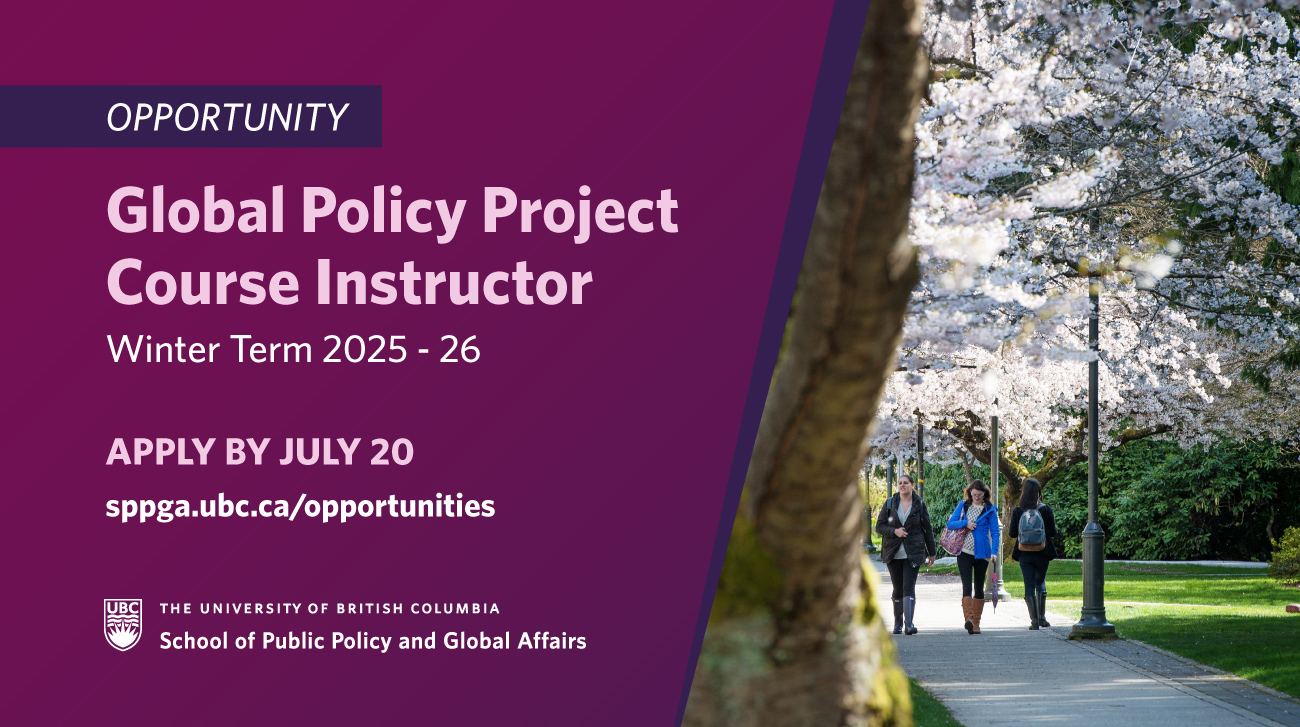

“Listening and giving space for all voices in the room is so important. Especially for governance or policy, to learn effective ways to challenge structures of historic harms and/or build from positions of strength.”
The School of Public Policy and Global Affairs gives a warm welcome to Dr. Tricia Logan, an incoming Assistant Professor who is jointly appointed with the Institute for Critical Indigenous Studies. She also serves as the interim Academic Director of the Indian Residential School History and Dialogue Centre at UBC.
Prof. Logan is a Métis scholar who has dedicated over 20 years to working with Indigenous communities in Canada. She completed her Master of Arts in Native Studies at the University of Manitoba, and holds a PhD in History from Royal Holloway, University of London which focused on residential schools, settler colonialism, and their narratives in Canadian history. Her expertise spans multiple roles in Indigenous-centered organizations, such as the National Centre for Truth and Reconciliation, as well as working with Métis communities and survivors of residential schools.
We had a conversation with Prof. Logan to learn more:
Tell us a bit about yourself and your work. What drives your research?
Over the last 25 years, a great deal of my research has been driven by work directly with residential school Survivors, intergenerational Survivors and the histories of residential schools in Canada. Survivor testimonies and Indigenous nations working on transformative change have driven many of the research-related projects I have worked on both professionally and academically.
How does your extensive experience working with Indigenous communities inform your approach to teaching and working with students?
Some of my experience has involved oral histories and listening to Survivors of residential school and Indigenous knowledge holders. Important teachings I have received, in many forms, from several Indigenous Elders, teachers, and knowledge holders involve how we enter into relationships with listening and learning, how we are all experts, and how students have a lot of their own understandings and teachings they carry with them. Listening and giving space for all voices in the room is so important. Especially for governance or policy, to learn effective ways to challenge structures of historic harms and/or build from positions of strength.
What are you most looking forward to in joining SPPGA? What are the issues at the intersection of your research and public policy that you find the most pressing?
I have had the chance to meet some of my SPPGA colleagues and teach a course in SPPGA, and I enjoy learning so much from all of the intersecting disciplines and areas of expertise they bring with them to the School. There is always something new in the diversity of topics and interests of the students. Student engagement in SPPGA is quite exciting. While my professional and academic experiences were originally focused on museum and archival policies, involving records access and Indigenous rights, increasingly topics of resources, climate, language, and health policy have continually emerged in this research.
Tell us about a favourite hobby or activity outside of work that you’re passionate about.
I speak and teach often about Indigenous languages and policy, but I keep my own lessons as a bit of ‘fun’ or a space of joy. While a lot of my dear colleagues and Elders are deeply involved in language revitalization and endangered languages as a part of their research, I have kept my language learning as a bit of ‘respite’ and as a bit of fun, to keep up with some of my language lessons. Michif language learning has always been part of my work, since 2006-2007 and I think I wish I had more time and resources to dedicate to language learning. I also am glad to keep the learning relatively separate from my work so I can have conversations for fun, laughs, and to meet new friends in language.


